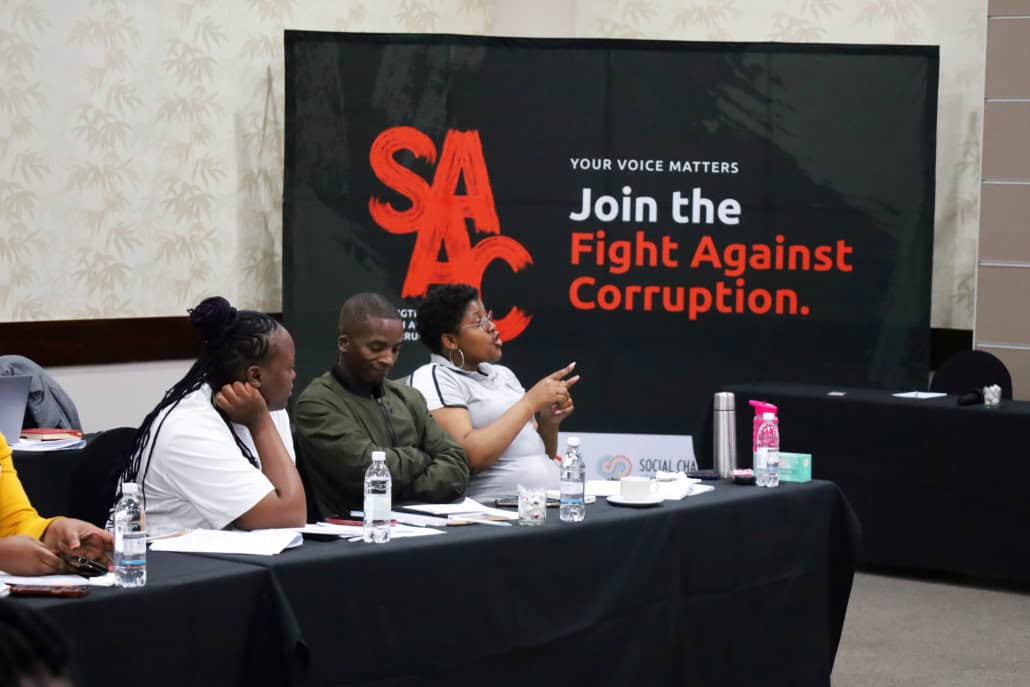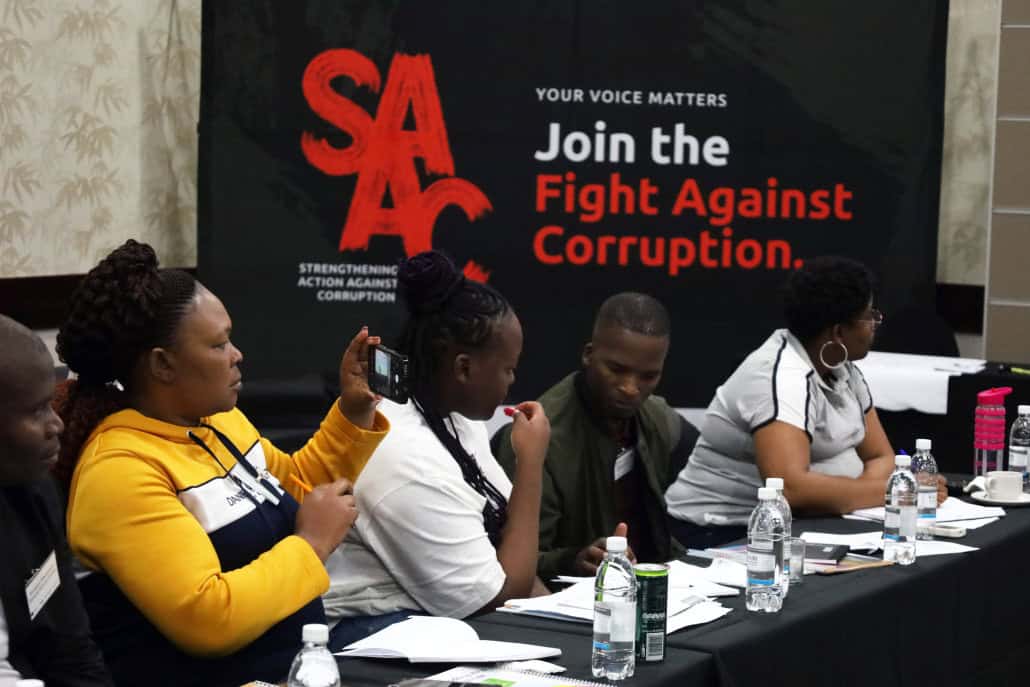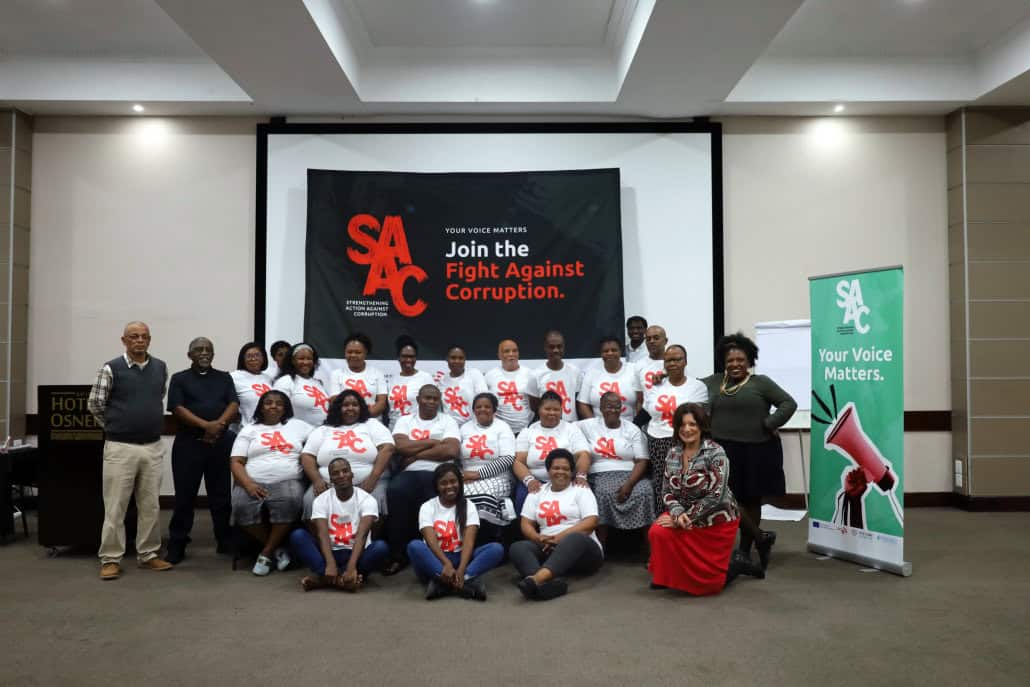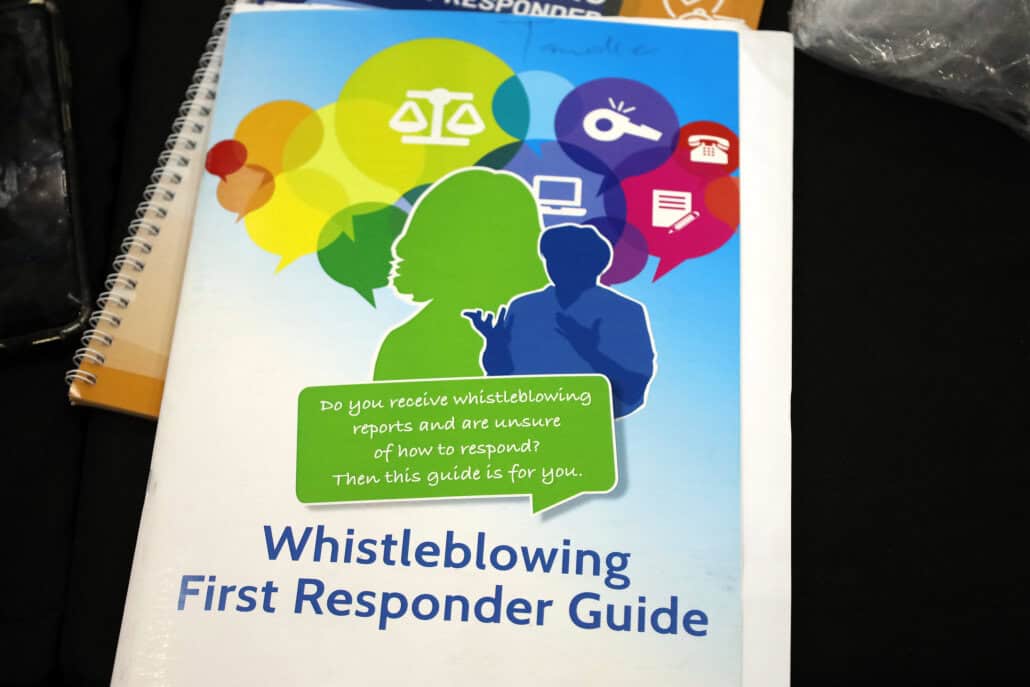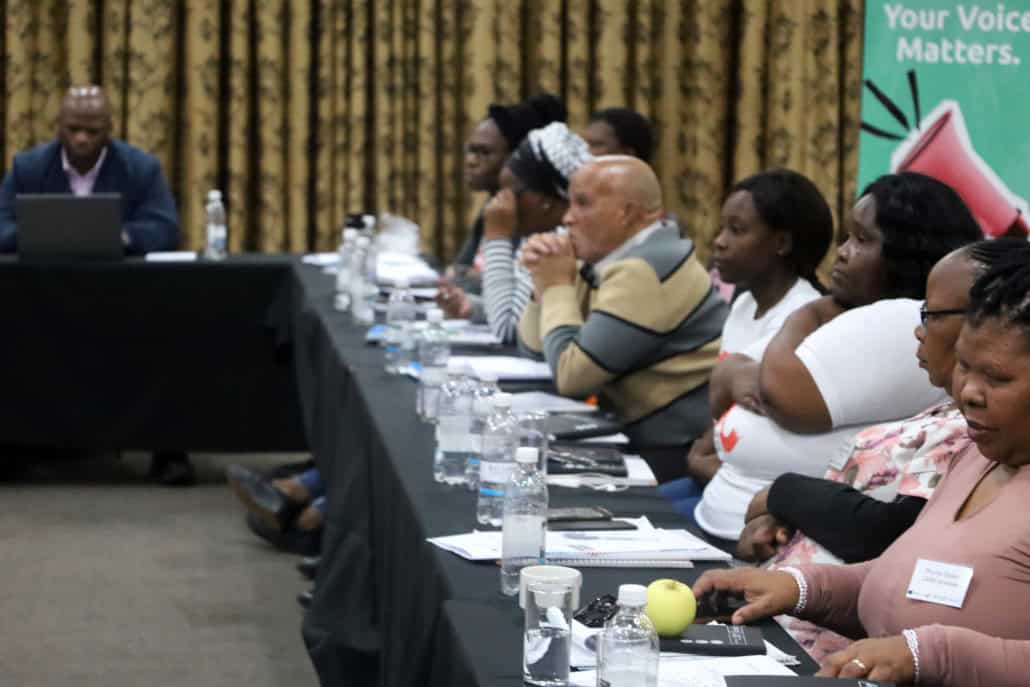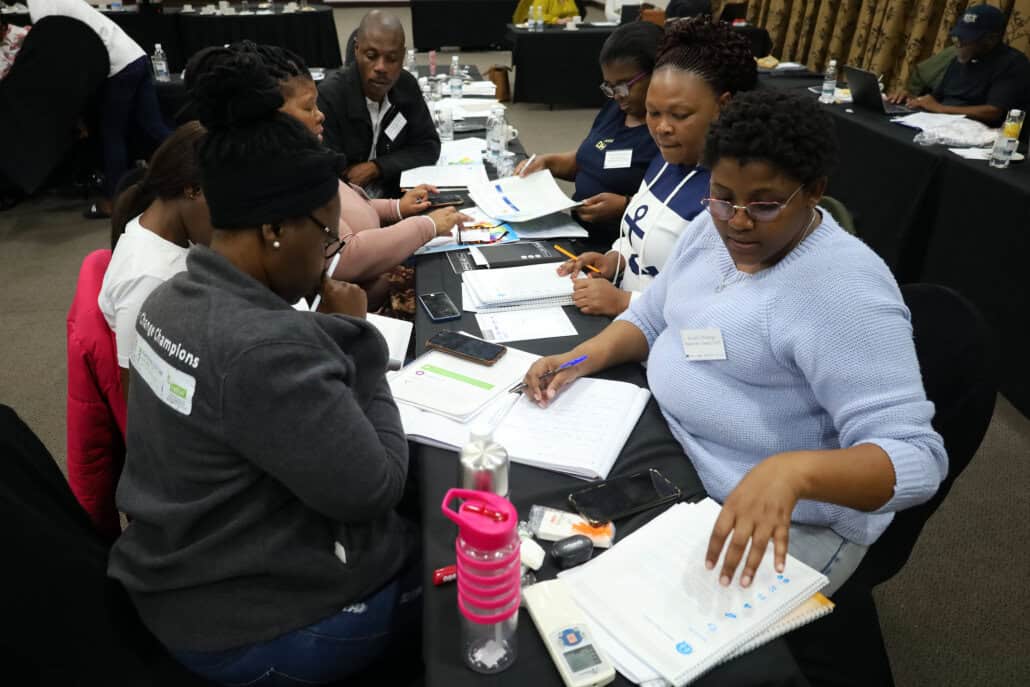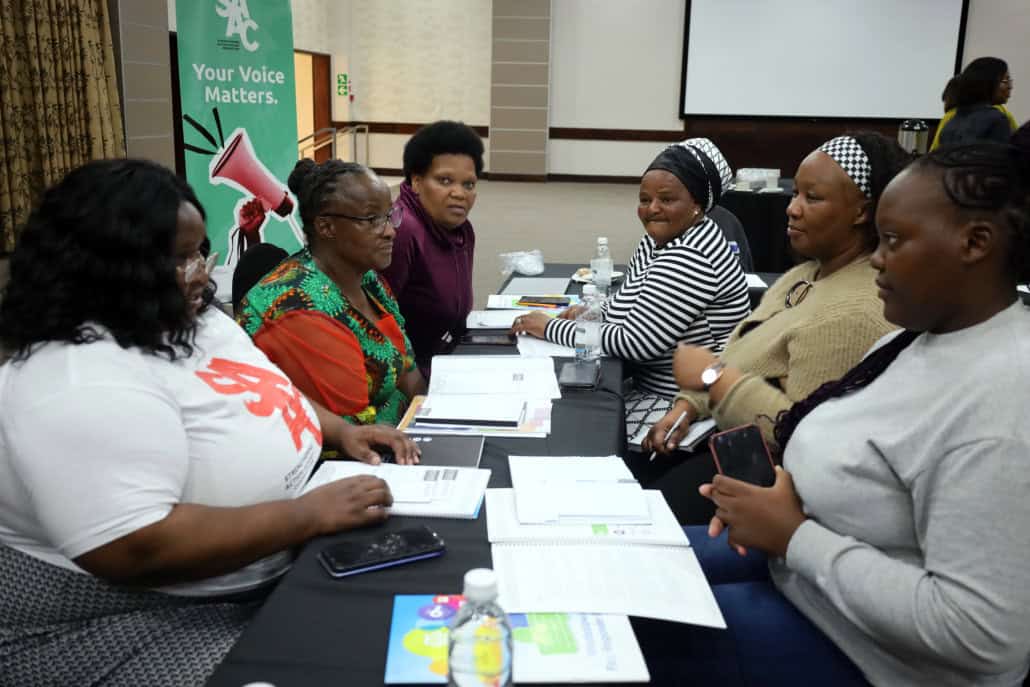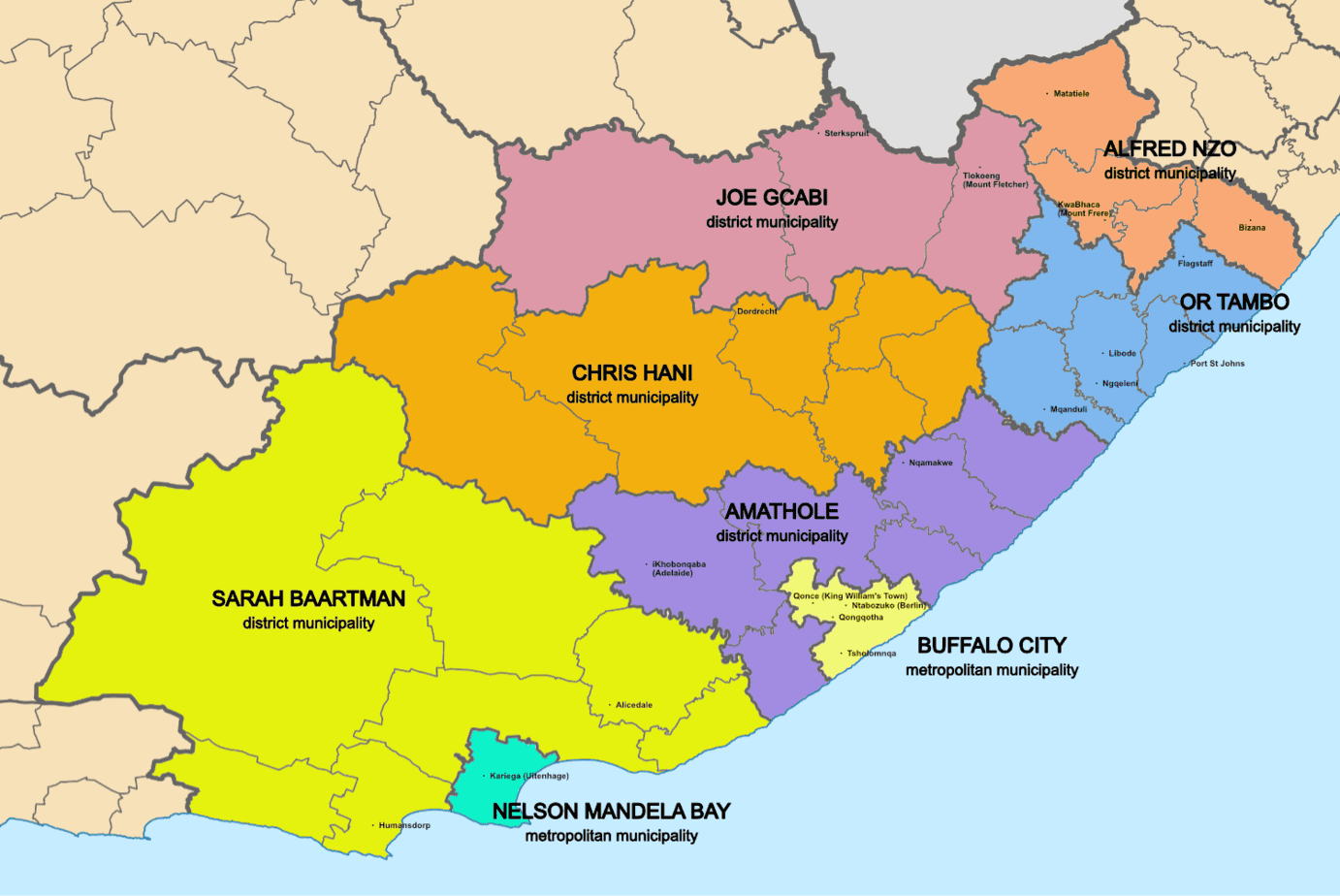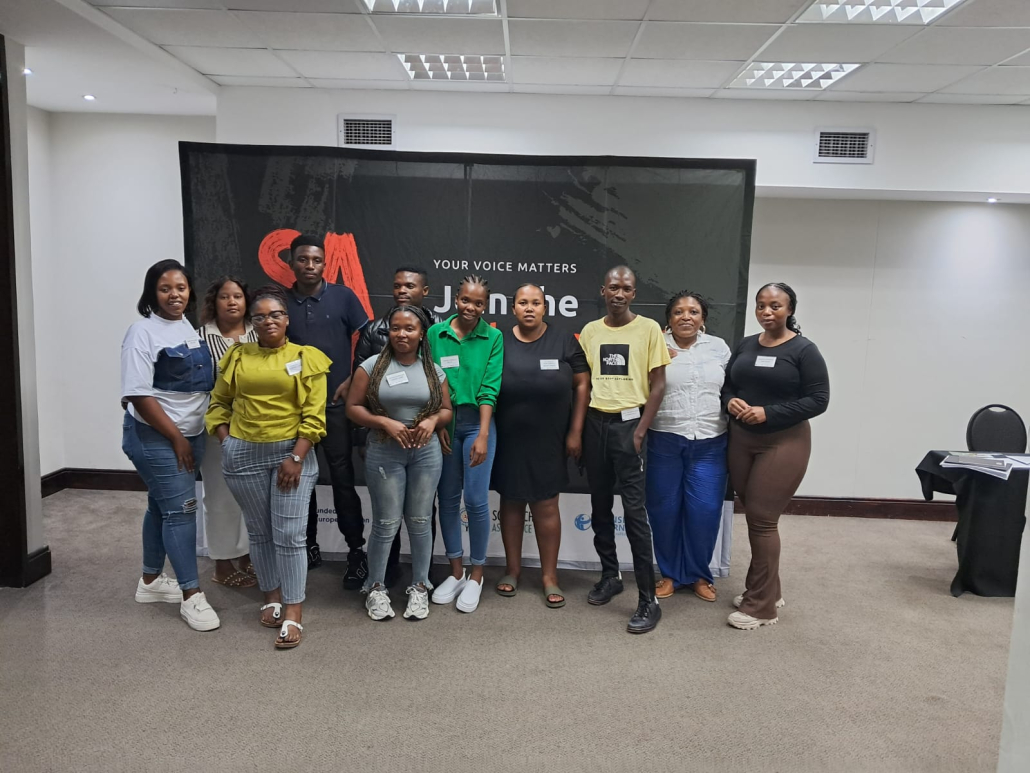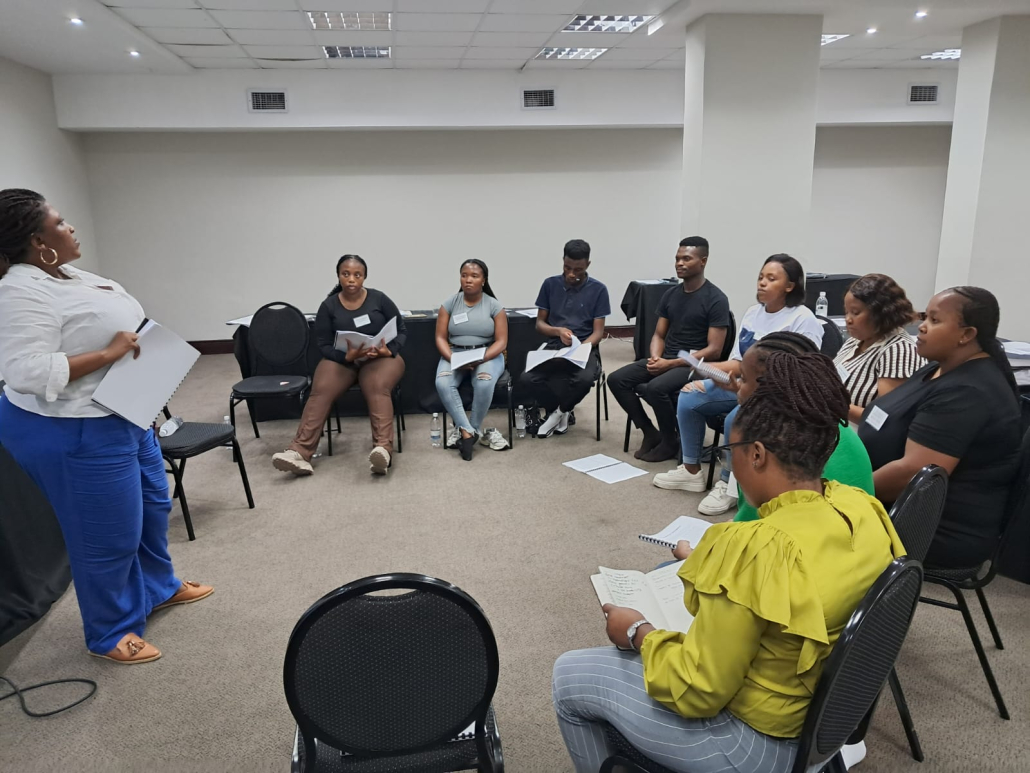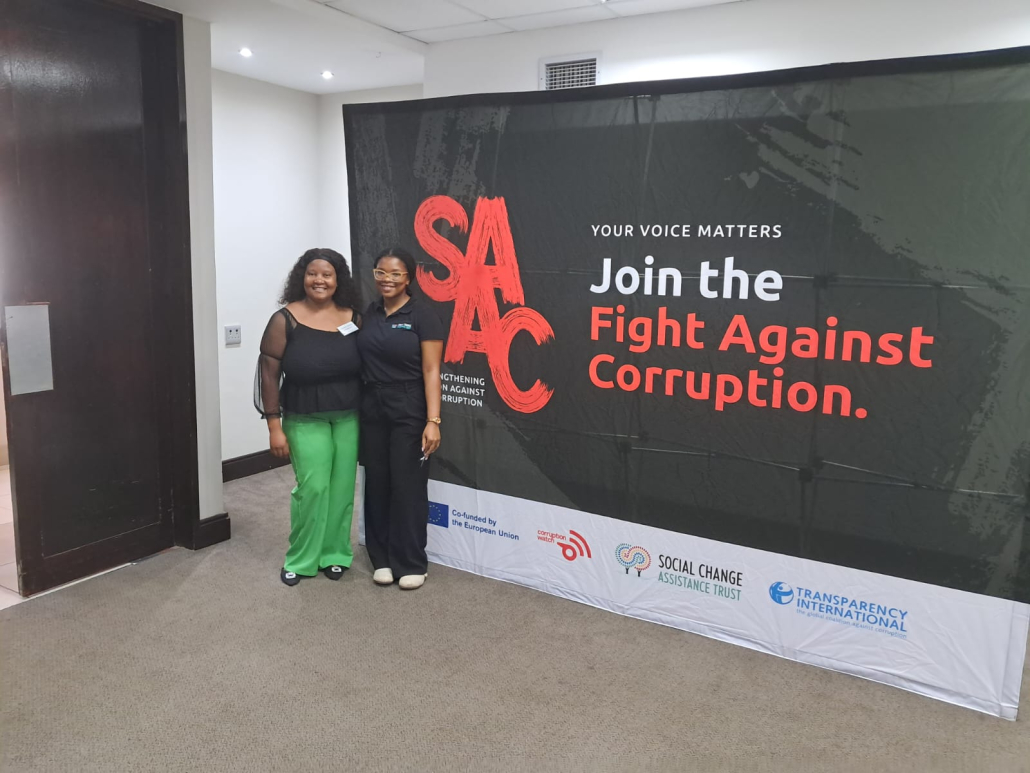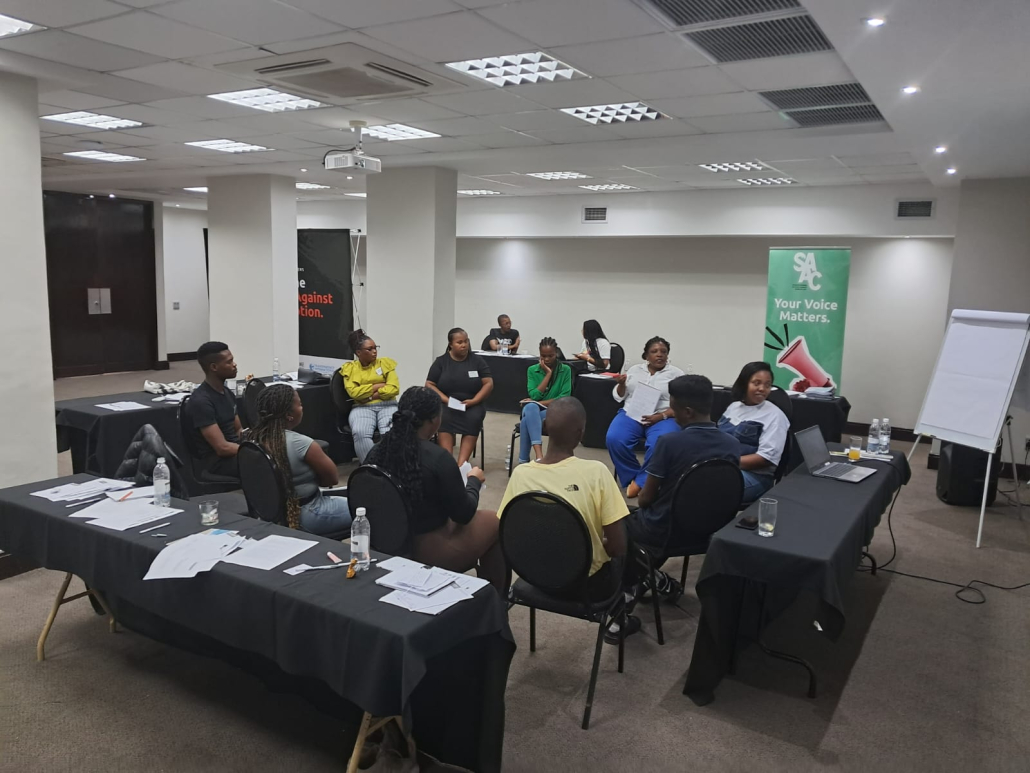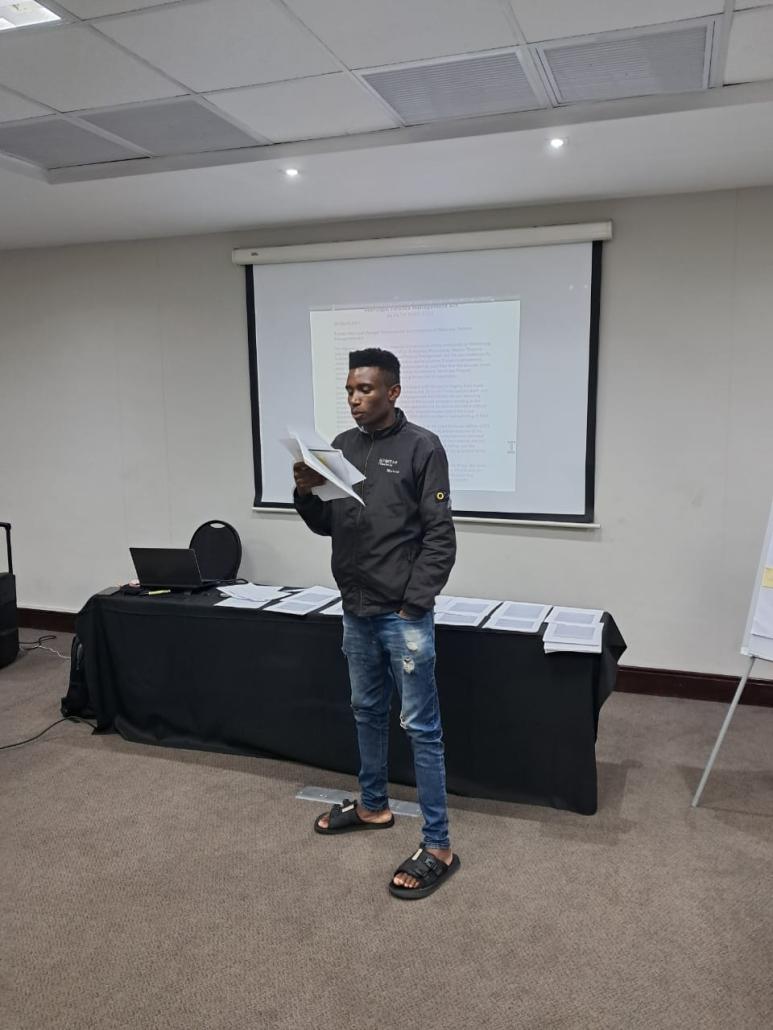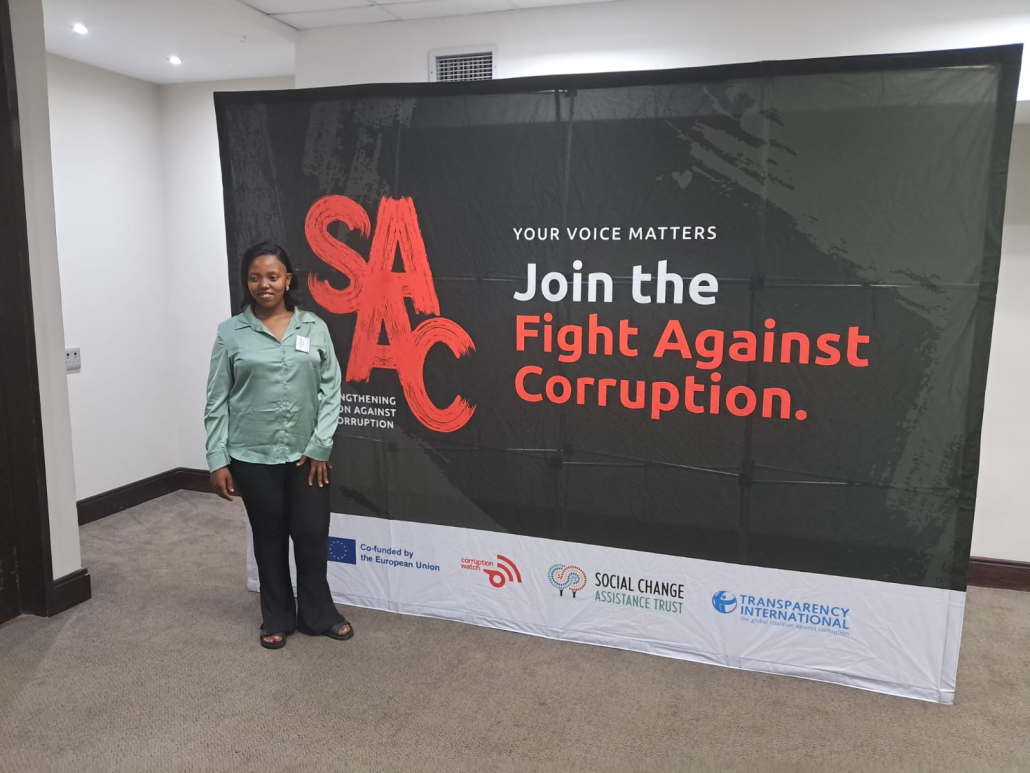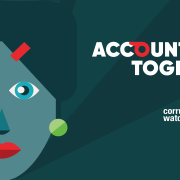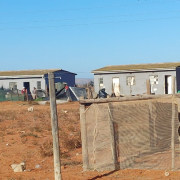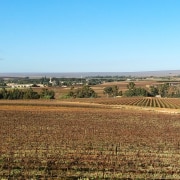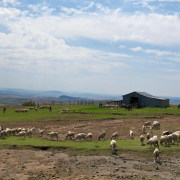|
Getting your Trinity Audio player ready...
|

Corruption Watch (CW), in collaboration with Social Change Assistance Trust (SCAT) and Transparency International (TI) and funded by the European Union, is committed to enhancing accountability in South Africa through the Strengthening Action Against Corruption (SAAC) Project. This initiative specifically targets community advice offices/civil society organisations (CSOs) in the Eastern Cape province, equipping them with the knowledge and resources needed to identify and address corruption. By supporting these organisations in mobilising their communities, SAAC fosters a culture of accountability and transparency that is fundamental to anti-corruption efforts in South Africa.
The project’s primary goals are to:
- Strengthen anti-corruption initiatives driven by CSOs.
- Enhance engagement and collaboration on anti-corruption efforts between civil society, state institutions supporting constitutional democracy, the public, and the private sector.
- Improve transparency, which in turn strengthens the deterrence and detection of corruption across the public and private sectors.
With planning largely finalised, the project kicked off in July 2024 with the Corruption Busting Bootcamp (CBB), which took place from the 15th to the 19th of that month. It brought together participants from around 30 community-focused organisations that span the length and breadth of the Eastern Cape. These include community advice centres, community development organisations, and advocacy groups, among others. The structure and focus of the CBB was informed by a baseline survey conducted in April 2024 that sought to assess the level of awareness among the envisaged bootcamp participants regarding the topic of corruption.
Where are the SAAC teams working?
The map below shows the municipalities and towns where the SAAC project is active (click the image for a bigger version):
The context for establishing SAAC
Corruption in South Africa permeates institutions and is sustained by corrupt individuals who leverage ineffective anti-corruption mechanisms. This dysfunction allows high-ranking individuals to evade prosecution, making it difficult to trace and recover stolen funds. A legacy of state capture and corruption has diverted public finances toward remedial measures instead of development, leaving the country’s infrastructure in disrepair. Damaged roads, under-resourced hospitals, schools with inadequate facilities, and unreliable water services are symptoms of this, along with an overstretched police force, which jeopardises public safety.
The Zondo Commission, while concluding its investigation, has underscored the depth of state capture, implicating powerful individuals who exploited state resources for personal gain. The commission’s findings echo in the persistent energy crisis, or “load shedding”, which has devastated businesses, increased unemployment, and intensified national disillusionment. The economic toll is immense: with unemployment at 32.1% (as of the third quarter of 2024), only 4.8-million of its 19.7 million youth are employed, and nearly half of adults live below the upper-bound poverty line. The financial losses are staggering; one estimate puts the loss to corruption between 2014-2019 at R1.5-trillion, and Eskom’s debt had surged to R400-billion by 2022.
There is a growing awareness in the civil society and business sectors of corruption’s pervasive nature, yet William Gumede, associate professor in the Witwatersrand University’s School of Governance, notes a cultural acceptance of incompetence and corruption, which erodes accountability. Internationally, South Africa’s reputation is tarnished, affecting foreign investment, stock market flows, and competitiveness.
Local government in the Eastern Cape province has been particularly impacted, with the Hawks investigating corruption in 17 of 39 municipalities since 2022. Public officials in informal syndicates, often with service providers, manipulate procurement systems to misappropriate funds, mirroring patterns seen in national high-profile corruption cases. This ongoing systemic corruption has entrenched the country’s struggle with socio-economic challenges and weak governance.

Why are we doing it?
Corruption is undoubtedly a serious problem in South Africa and all provinces, with no exceptions, face its repercussions in the form of poor service delivery and improper management of resources. Residents of the Eastern Cape, however, have seen a new wave of activism brought about by the SAAC project.
We asked some of the activists involved for their views on the project. Click on the names below to expand the interviews:
Thembi Tshongoyi, SCAT Youth Ambassadors for Accountability coordinator
Corruption is a pervasive problem that has endangered our democracy, and South Africans across the country bear the brunt of it daily. Why is the SAAC focused on the Eastern Cape?
The SAAC project focuses on the Eastern Cape due to its history of corruption, which has obstructed development and public services. Growing up in the Eastern Cape, I saw how corruption exploited people’s lack of knowledge of their legal rights and caused a lack of motivation and trust in the government, particularly among the youth. By targeting this region, the SAAC project aims to empower young people and Eastern Cape rural communities to identify, prevent, and address corruption, giving them the tools to challenge the status quo and drive positive change, as they are the ones who will bear the long-term effects of corruption.
What is your personal wish for the project?
My personal wish for the SAAC project is that it empowers us, as young people from the Eastern Cape, with the skills and confidence to challenge corruption in our communities. I use “us” because I believe I am still affected by the corruption there, as it is one of the reasons why people like me have sought opportunities in other provinces. I hope this project inspires us to advocate for transparency and accountability, so that we can contribute to building a more just and equitable society for future generations.
What would you like for participants in the project to take away from it?
I want participants to walk away with a deep understanding of how corruption impacts their communities and the practical tools to address it. I hope they gain the confidence to lead efforts for transparency and accountability. Most importantly, I want them to recognise that they are the key to creating real change – projects may come and go, but their commitment to making a difference in the Eastern Cape province should remain steadfast. I hope they feel empowered to act, equipped with the skills and support to drive meaningful change.
What will a corruption-free Eastern Cape look like for the ordinary resident?
A corruption-free Eastern Cape would mean quality public services, fair opportunities, and a transparent, accountable government. Roads, schools, and healthcare would improve, and communities would trust their leaders and actively participate in decisions that have to do with their own development. The youth would feel hopeful, with opportunities to thrive in their own province, making it more attractive and retaining their talent for its growth.
What is your message of support for all the activists participating in the SAAC?
Change is never easy, but your efforts to promote accountability and fairness will leave a lasting impact.
Nontobeko Gcabashe, Corruption Watch project coordinator
Corruption is a pervasive problem that has endangered our democracy, and South Africans across the country bear the brunt of it daily. Why is the SAAC focused on the Eastern Cape?
The Eastern Cape has long struggled with persistent corruption and maladministration, particularly in key sectors such as health, education, and infrastructure development. These challenges, however, present a unique opportunity to showcase the transformative impact of targeted anti-corruption efforts.
Many residents of the province are disempowered and disengaged due to historical neglect and systemic challenges brought on by corruption. By empowering them, and strengthening accountability mechanisms, the SAAC project not only addresses local issues but also creates a replicable model for other provinces.
The project seeks to reignite civic agency, encouraging communities to take ownership of their role in combating corruption and advocating for better governance. Its work in the Eastern Cape also lays the groundwork for broader systemic reform across South Africa.
What is your personal wish for the project?
My personal wish for the SAAC project would be that it successfully fosters a culture of sustained civic engagement and accountability, empowering communities – not only to challenge corruption, but also to actively shape the policies that impact their daily lives. I hope it becomes a powerful tool for restoring trust in governance, ensuring that resources are allocated fairly and used efficiently, ultimately improving the quality of life for ordinary people in the Eastern Cape.
Furthermore, I would like to see this project inspire collaboration across sectors, from government and civil society to the private sector, creating a united front against corruption. By building momentum in the Eastern Cape, I hope it catalyses broader reforms nationally.
What would you like for participants in the project to take away from it?
The SAAC project calls for:
– Active citizenry and collaboration amongst stakeholders.
– Promotion of responsible and ethical leadership.
– A culture of accountability.
What will a corruption-free Eastern Cape look like for the ordinary resident?
A corruption-free Eastern Cape is where:
– All the residents have access to basic services and these services are improved.
– There is job creation and economic growth and where the youth is prioritised and capacitated.
– Schools are adequately resources and school infrastructure is adequately developed.
– Citizens would have confidence in their leaders, knowing that decisions are made in their best interest.
What is your message of support for all the activists participating in the SAAC?
To all the activists participating in the SAAC project, I offer my deepest admiration and support for the vital work you’re doing. Your courage, determination, and unwavering commitment to fighting corruption form the bedrock of real change.
Your actions are not only transforming the Eastern Cape, but also setting a powerful example for the rest of the country and beyond. Never forget that every step you take, no matter how small it may seem, contributes to a larger movement toward justice, fairness, and equality.
Jonathan Walton: SCAT coordinator
Corruption is a pervasive problem that has endangered our democracy, and South Africans across the country bear the brunt of it daily. Why is the SAAC focused on the Eastern Cape?
Indeed, corruption is a pervasive problem, and everyone is affected. The SAAC project is focused on local government in the Eastern Cape because maladministration, financial mismanagement, fraud, bribery, theft, nepotism, and cronyism are some of the forms of corruption that are deeply manifested in municipalities in the province.
Reports by the auditor-general, investigations by the Special Investigating Unit and the Hawks, and cases enrolled by the National Prosecuting Authority over the years are all a testimony to the prevalence of corruption in the Eastern Cape. The SAAC is an encouraging human rights-based advocacy initiative to strengthen the capacity of SCAT, supported by community-based advice offices (CBAOs) and community-based organisations (CBOs) in the province to hold municipalities accountable.
What is your personal wish for the project?
Given the serious alleged manifestation of corruption in municipalities in the Eastern Cape such as the Makana and Lukhanji local municipalities, the Amathole, OR Tambo, Alfred Nzo district municipalities and the Nelson Mandela Bay Metropolitan Municipality, I would like to see the project run for at least a period of five years. I would also like to see CBAOs and CBOs becoming more involved in combating and preventing corruption in local communities. This can only happen with sustained training and skills development. I can only hope that the project will shift mindsets.
What would you like for participants in the project to take away from it?
I would like to see participants demonstrate the willingness to hold municipalities accountable through a culture of activism and meaningful engagement. Through the SAAC, I want participants to become better social justice activists.
What will a corruption-free Eastern Cape look like for the ordinary resident?
Given the challenges faced by the anti-corruption agencies, and oversight weaknesses in municipalities and public administration in general, it will take a long time to achieve a corruption-free Eastern Cape. Nonetheless, ordinary citizens from all walks of life want to see people implicated and involved in corruption arrested, investigated and expeditiously prosecuted and jailed. A corruption-free Eastern Cape or municipality means that public funds are not stolen, but used for their intended purpose such as the provision of quality water and sanitation, safer communities, better roads, upliftment of informal settlements, and others.
What is your message of support for all the activists participating in the SAAC?
Fighting corruption is not easy. There are many other ways and means to fight corruption without being exposed to dangerous risks. For too long, poorer people in the Eastern Cape have been deprived of the improved quality of life that was promised to them. Corruption is an obstacle to the realisation of the constitutional rights of people.
Activists must not give up on the fight against the scourge of corruption. In the spirit of togetherness and cooperation, I will provide the necessary guidance and advice to all activists.
NEW! At the beginning of April 2025 we hosted a week-long training workshop for a cohort of young people, nominated through their community work across different parts of the Eastern Cape. They received training in advocacy work, communications, and media, and how to hold each other accountable as part of the SAAC’s Youth Ambassador for Accountability (YAfA) programme. The workshop was successful in bringing to the fore the key issues that young people affected by corruption and poor governance see in their communities every day, and encouraging them to be able to confidently answer the question: ‘what can I do about it?’ Read more in this short opinion piece.

